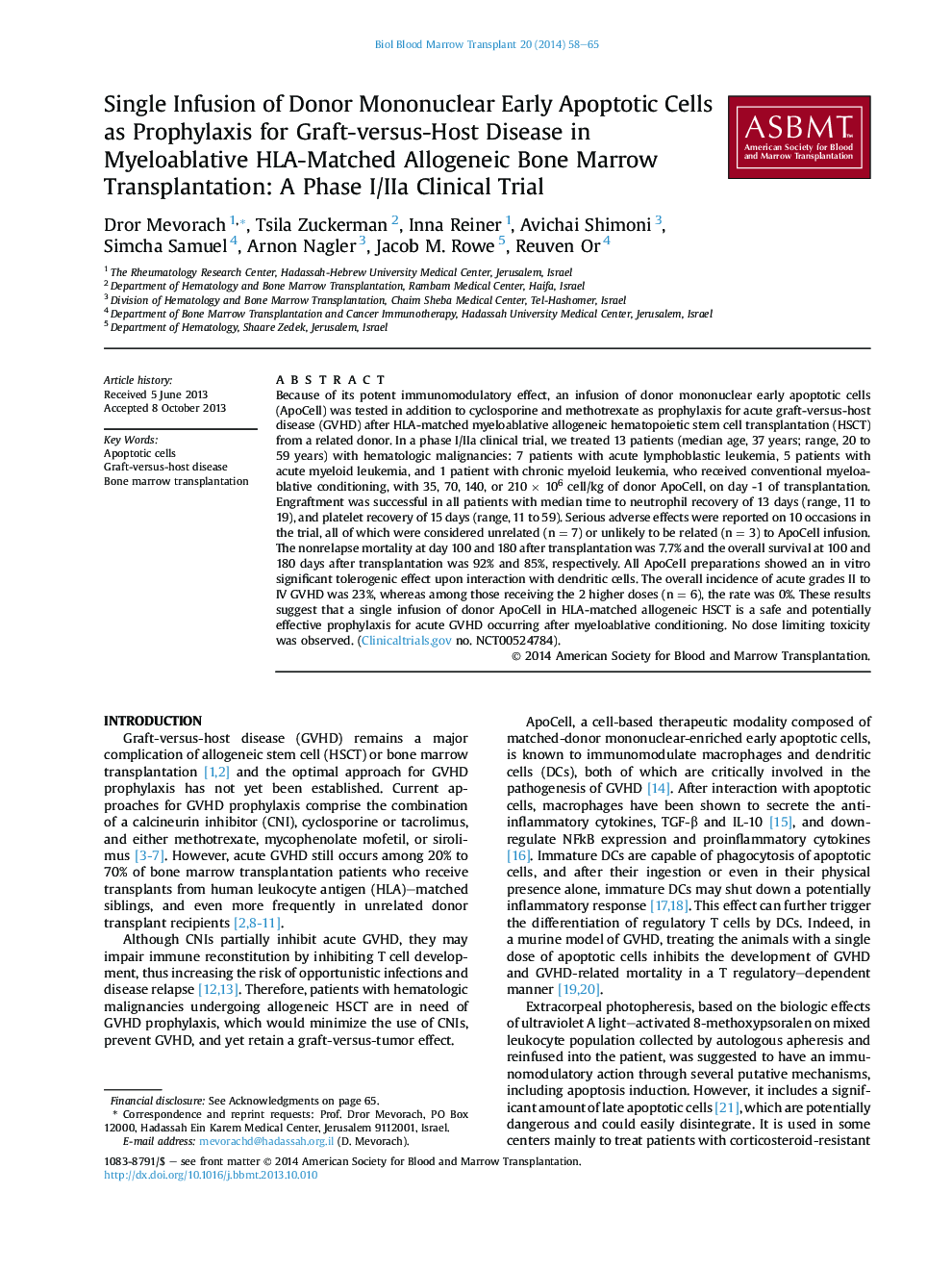| Article ID | Journal | Published Year | Pages | File Type |
|---|---|---|---|---|
| 2102370 | Biology of Blood and Marrow Transplantation | 2014 | 8 Pages |
Because of its potent immunomodulatory effect, an infusion of donor mononuclear early apoptotic cells (ApoCell) was tested in addition to cyclosporine and methotrexate as prophylaxis for acute graft-versus-host disease (GVHD) after HLA-matched myeloablative allogeneic hematopoietic stem cell transplantation (HSCT) from a related donor. In a phase I/IIa clinical trial, we treated 13 patients (median age, 37 years; range, 20 to 59 years) with hematologic malignancies: 7 patients with acute lymphoblastic leukemia, 5 patients with acute myeloid leukemia, and 1 patient with chronic myeloid leukemia, who received conventional myeloablative conditioning, with 35, 70, 140, or 210 × 106 cell/kg of donor ApoCell, on day -1 of transplantation. Engraftment was successful in all patients with median time to neutrophil recovery of 13 days (range, 11 to 19), and platelet recovery of 15 days (range, 11 to 59). Serious adverse effects were reported on 10 occasions in the trial, all of which were considered unrelated (n = 7) or unlikely to be related (n = 3) to ApoCell infusion. The nonrelapse mortality at day 100 and 180 after transplantation was 7.7% and the overall survival at 100 and 180 days after transplantation was 92% and 85%, respectively. All ApoCell preparations showed an in vitro significant tolerogenic effect upon interaction with dendritic cells. The overall incidence of acute grades II to IV GVHD was 23%, whereas among those receiving the 2 higher doses (n = 6), the rate was 0%. These results suggest that a single infusion of donor ApoCell in HLA-matched allogeneic HSCT is a safe and potentially effective prophylaxis for acute GVHD occurring after myeloablative conditioning. No dose limiting toxicity was observed. (Clinicaltrials.gov no. NCT00524784).
